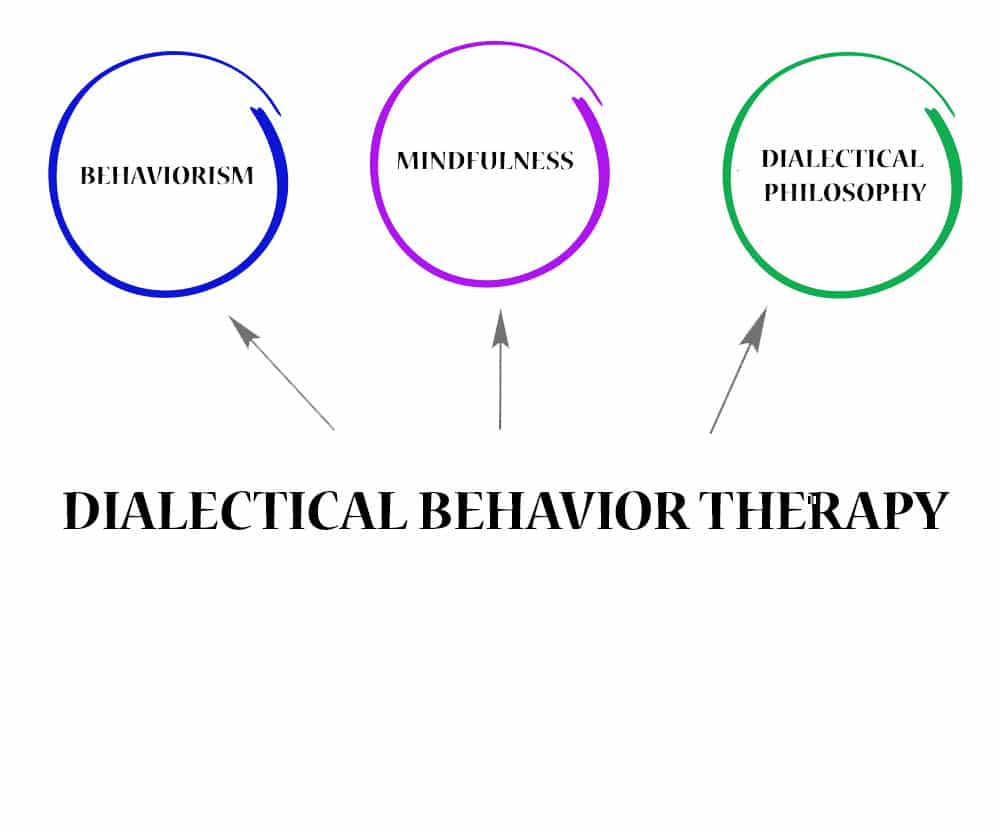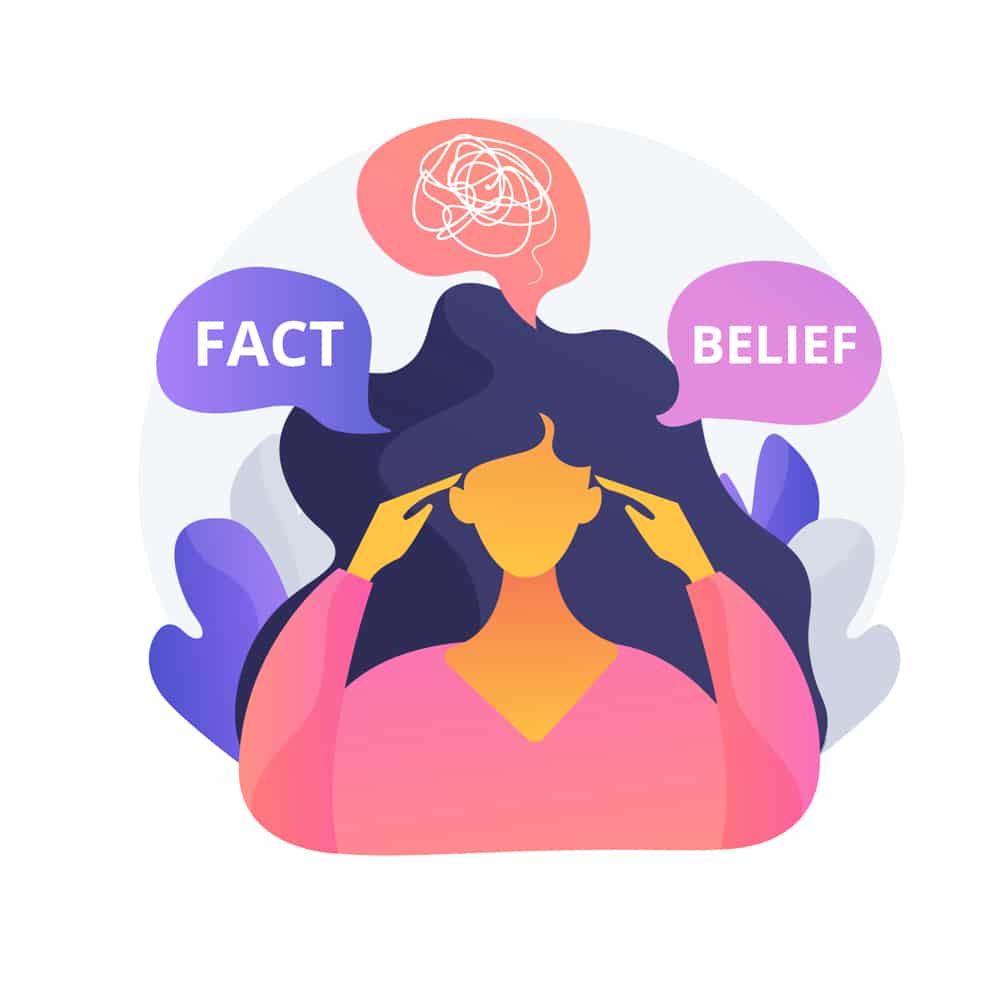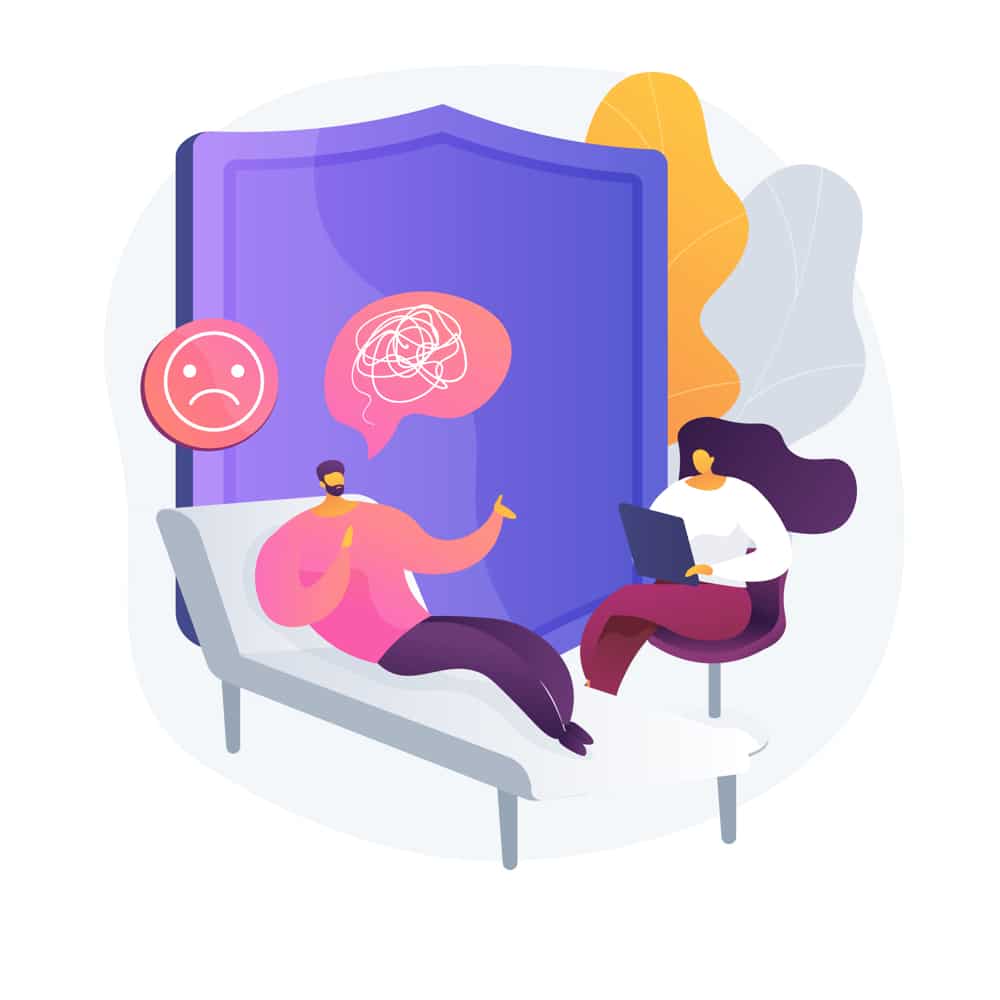Treatments
Dr. Vijay provides evidence-based treatments including: Cognitive-Behavior Therapy, Dialectical Behavior Therapy, and Acceptance and Commitment Therapy. Her work is influenced by acceptance-based approaches (you have to accept you have a problem before solving it) and a mindful approach to living and thriving.

Dialectical Behavior Therapy
DBT is a multi-component approach to the treatment of severe emotion dysregulation. It was originally developed by Dr. Marsha Linehan to treat Borderline Personality Disorder. Characteristics associated with BPD include non-suicidal self-injury, chronic self-harm, chronic suicidal ideation or multiple suicide attempts.
DBT is helpful for people who have intense emotions and at times those emotions seem to take over their lives, relationships and the decisions they make. Research indicates that it can be helpful for other conditions including anxiety, substance use and eating disorders.
The underlying principle of DBT is that there is a dilemma – or dialectical tension – between needing to accept where we are in life and working to change what we do not like or what is not healthy for us. We cannot change something before we accept that it exists and it can be very painful to accept certain things about our life.
Comprehensive DBT includes multiple components: individual sessions, a skills group, phone coaching and a consultation team for the therapist.
Individual Sessions
During an individual session, you meet with your therapist to identify goals and figure out how to track the changes you are making. The bulk of the session focus on work to help you get closer to your goals. DBT focuses on emotions…what are they telling you? How do you handle them? How do you learn how to manage your emotions so that they work for you and allow you to create and live a life you value.
Skills Group
A DBT Skills Group is a 6-month group that covers the topic areas of mindfulness, distress tolerance, emotion regulation, and interpersonal effectiveness. In
each group, we start with a mindfulness exercise, homework review, and teach a new concept. Groups are approximately 90 minutes in length.
Dr. Vijay runs DBT skills group and sometimes refers patients to skills groups with other providers with who she collaborates. This is dependent on clinical needs, client preference, and scheduling factors.
Phone Coaching
Clients who are in a comprehensive DBT program (they are working with a therapist individually and attending a DBT skills group) are able to access phone coaching throughout the week. They are able to call/text their therapist for help using skills during the week. These are not therapy sessions on the phone but rather a way to
get additional support during the week to help change your life. More information is provided during the individual session and this generally starts after you have begun your first skills group.
Consultation Team
In order to be an adherent DBT therapist, the therapist must meet with a consultation team. During this meeting, therapists discuss their cases and are able to receive consultation to ensure that they are providing the highest quality care as possible. All client information is kept confidential and no names are used. This team is a space to support therapists. Dr. Vijay meets weekly with a DBT consultation team to improve her practice and she also does research in this area.
Cognitive-Behavior Therapy
Cognitive-Behavior Therapy is an approach to treatment that focuses on the relationship between thoughts, feelings, and behaviors. The underlying principle is that these things interact with one another to affect our internal experience and how we make our way in the world. In this approach, we work to modify our behavior or our thoughts in order to impact our feelings thereby improving quality of life.
There is a robust evidence base to indicate that CBT is effective in the treatment of depression, anxiety, obsessive-compulsive disorder, substance use, trauma, and panic disorder.
Post-Traumatic Stress Disorder and other Trauma-Related Disorders
PTSD and other reactions to trauma are typically treated with forms of CBT: Prolonged Exposure and Cognitive Processing Therapy. Both are used in the treatment of trauma depending upon client needs and preferences. Dr. Vijay received extensive training in both modalities during her time with the Department of Veterans Affairs.
These treatments and the Skills Training in Affective and Interpersonal Regulation (Marylene Cloitre) is used in the treatment of childhood sexual abuse. Dr. Vijay has training in this model and has used it in her work with victims of childhood abuse.


